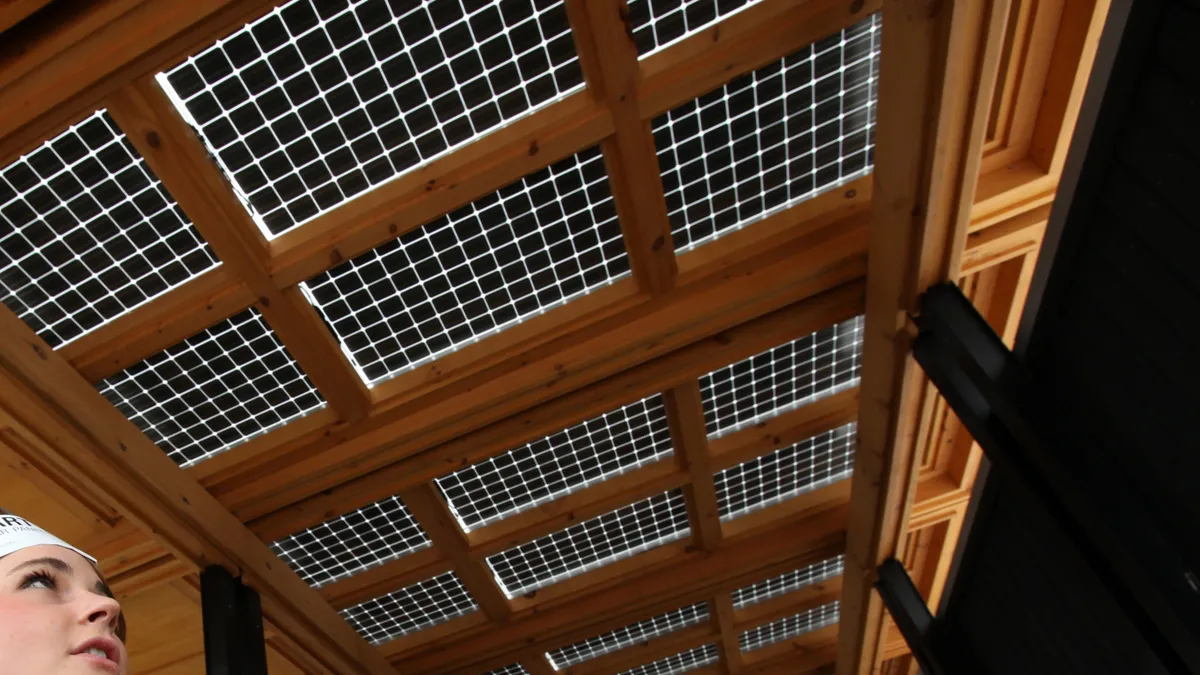Dive Brief:
- The Trump administration on Friday eliminated a tariff exclusion announced in June for a growing solar technology as part of the White House's efforts to reduce the impacts of tariffs on U.S. manufacturing, in place since January 2018.
- Bifacial panels absorb light more efficiently by being double sided, but the technology is in its early stages and is developed by foreign manufacturers like JinkoSolar and Canadian Solar. While U.S. solar manufacturers saw a brief boost in stocks on Monday from the announcements, analysts warned the policy reversal could have an adverse effect on solar deployment.
- The technology will be subject to a 25% tariff starting Oct. 28, according to the notice from the Office of the U.S. Trade Representative.
Dive Insight:
JinkoSolar and other international producers increased production of bifacial modules following the tariff exclusion, but a sudden reversal on the policy dampens those plans, according to analysts.
In this regard, the interests of some foreign and domestic solar interests are lining up, with expanded exclusions part of a wider policy agenda that solar stakeholders are lobbying for in the U.S.
The Solar Energy Industries Association is advocating for increased exemptions to the solar tariff while separately fighting for an extension of the solar investment tax credit, which will start to sunset in 2020, according to the industry group's spokesperson Dan Whitten.
The Trump administration announced in June that the nascent panel technology would be exempt from the solar tariffs along with other higher efficiency products such as solar cells without busbars or gridlines. However, the U.S. Trade representative consulted with the Secretaries of Commerce and Energy and concluded the exclusion would ultimately undermine attempts to safeguard domestic production of solar panels.
"After evaluating newly available information from these and other sources demonstrating that global production of bifacial solar panels is increasing, that the exclusion will likely result in significant increases in imports of bifacial solar panels," which would compete with single and double-sided panels manufactured domestically, the Trade Representative's office wrote in their decision to withdraw the exemption.
Notice of the exclusion withdrawal will be published in the Federal Register on Wednesday.















